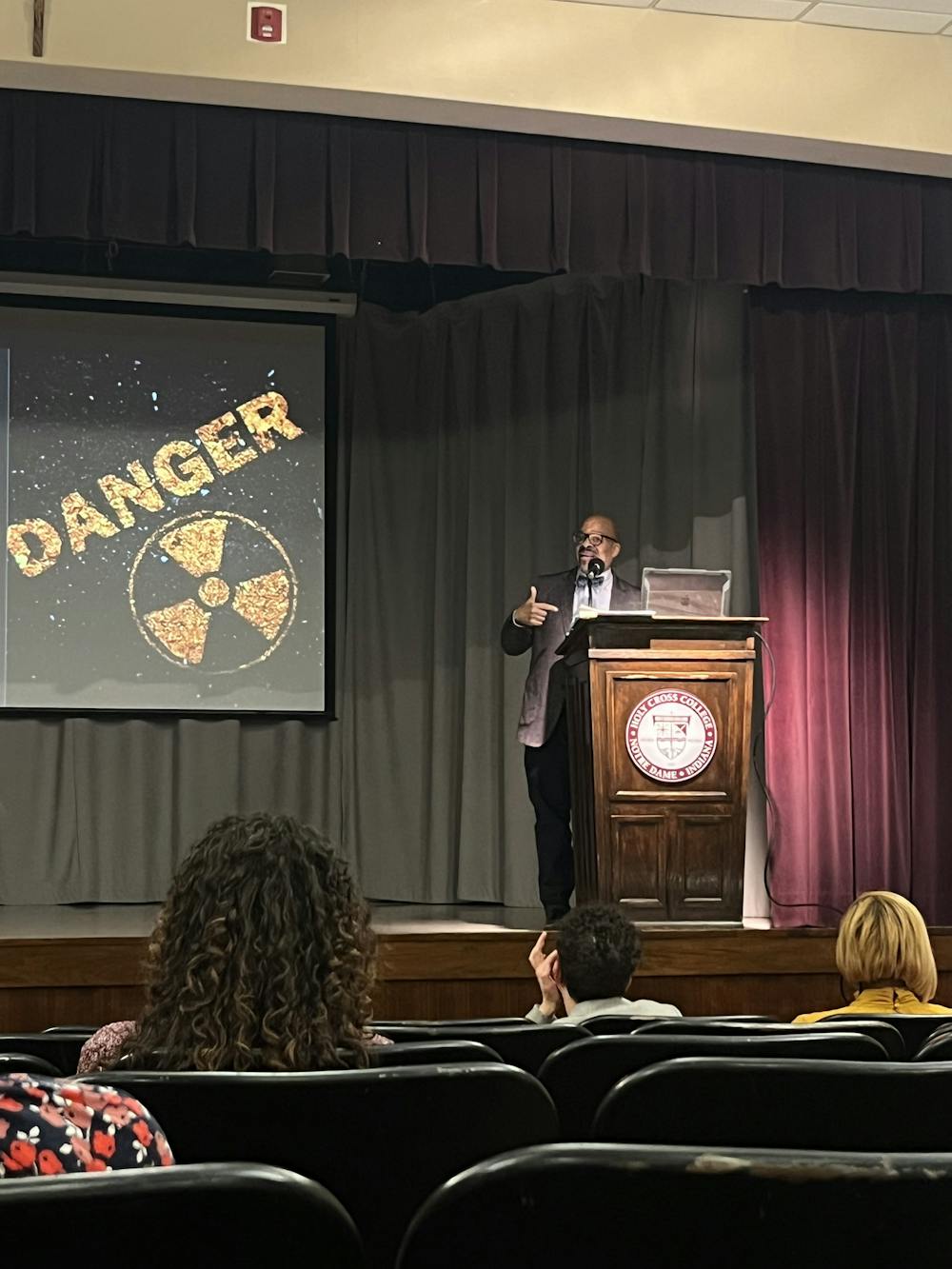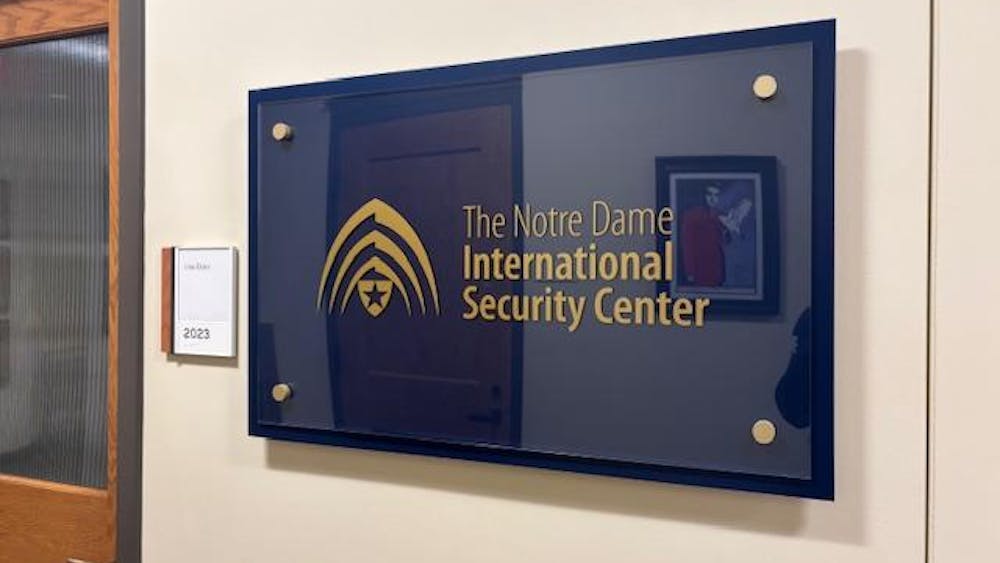In honor of upcoming Martin Luther King Jr. Day, tri-campus students and faculty gathered Wednesday evening to listen to Danjuma Gibson speak on his most recent book “Through the Eyes of Titans.”
The public lecture in Holy Cross’s Driscoll Auditorium was co-sponsored by Saint Mary’s College’s Division for Inclusion and Equity and Holy Cross College.
Gibson is a professor of pastoral theology, care and counseling at Calvin Theological Seminary and a practicing psychotherapist in Grand Rapids, Michigan.
With the question “demythologizing the work of freedom and the beloved community: and what are we prepared to do?” displayed behind him, Gibson opened the discussion with a series of videos that depicted the voice of MLK in what he described as a commercial myth.
He then acknowledged that certain figures such as MLK are granted hero status in today’s society. He contrasted this notion of hero status to the “traumatized reality” of the experiences of the King family after MLK’s assassination in April of 1968, a reality shared amongst many prominent civil rights figures of the period.
Gibson urged the audience to remember that although remarkable, “commercialized ideal figures” were simply just people who chose to do the right thing. These figures, including MLK but also Ida B. Wells, Fannie Lou Hamer and Benjamin Elijah Mays, are the focus of his book.
After reading these figures’ autobiographical works in order to humanize them with a psychological lens, he concluded that “they do what a lot of people don’t like to do; work through the inner pain.”
He emphasized the importance of discerning the mythological from reality of the lives of which his work focused on, speaking of intergenerational trauma and suppression of emotion, especially within a religious context.
Gibson explained how he came to see what he calls racial imagination as “a representation of an intergenerational, socialization of the individual and collective psyche, sometimes consciously, but more often operating at a deeply unconscious level."
Further explaining this term, he said, “Non-white skin becomes the instantaneous visual marker to believe and experience not normal. Darker skin hue becomes the immediate marker for someone to think, not normal.”
When asked what tools the tri-campus would need in order to engage with the racial imagination of today’s political climate, Dr. Gibson said the tri-campus would have to look to each other.
“Violence, inequality and racial injustice is a thorough point in American history that is as American as apple pie. No one is coming to save us, we are all we have. I am living for my daughter to have a better place to live,” he said. “It’s a journey, and it requires doing that work with the person that’s next to you. And I say in my last chapter, I have resisted the temptation to provide some type of grand answer, because I'm not smart enough for that: you are.”
When asked what brought her to the event, attendee and Saint Mary’s sophomore Ella Eitniear said she was cleaning out her emails when she found the event flyer.
”Post-election has been pretty rough, and there’s been a growing sense of helplessness and hopelessness, so I kind of was interested in looking at how we can enact justice, especially now,” she said.
“I think that change will take generations and that’s a fact, but I don’t think that should stop us from doing work today,” Saint Mary’s senior Caroline Dutton added. “Like Dr. Gibson said, if we mythologize the past, it absolves us of taking action and steps that might require courage and be difficult today.”
Dr. Gibson concluded his lecture by pointing his audience to what he sees as the work ahead.
“We must seek to recover the voices of black and brown figures to see what that reveals to us and find courage to work through disappointment, find purpose, and see what love looks like,” he said. “It would take generations to reverse the racial imagination of everyday experience, but we must fall back on our own genius when we de-idealize those we hold so highly.”










